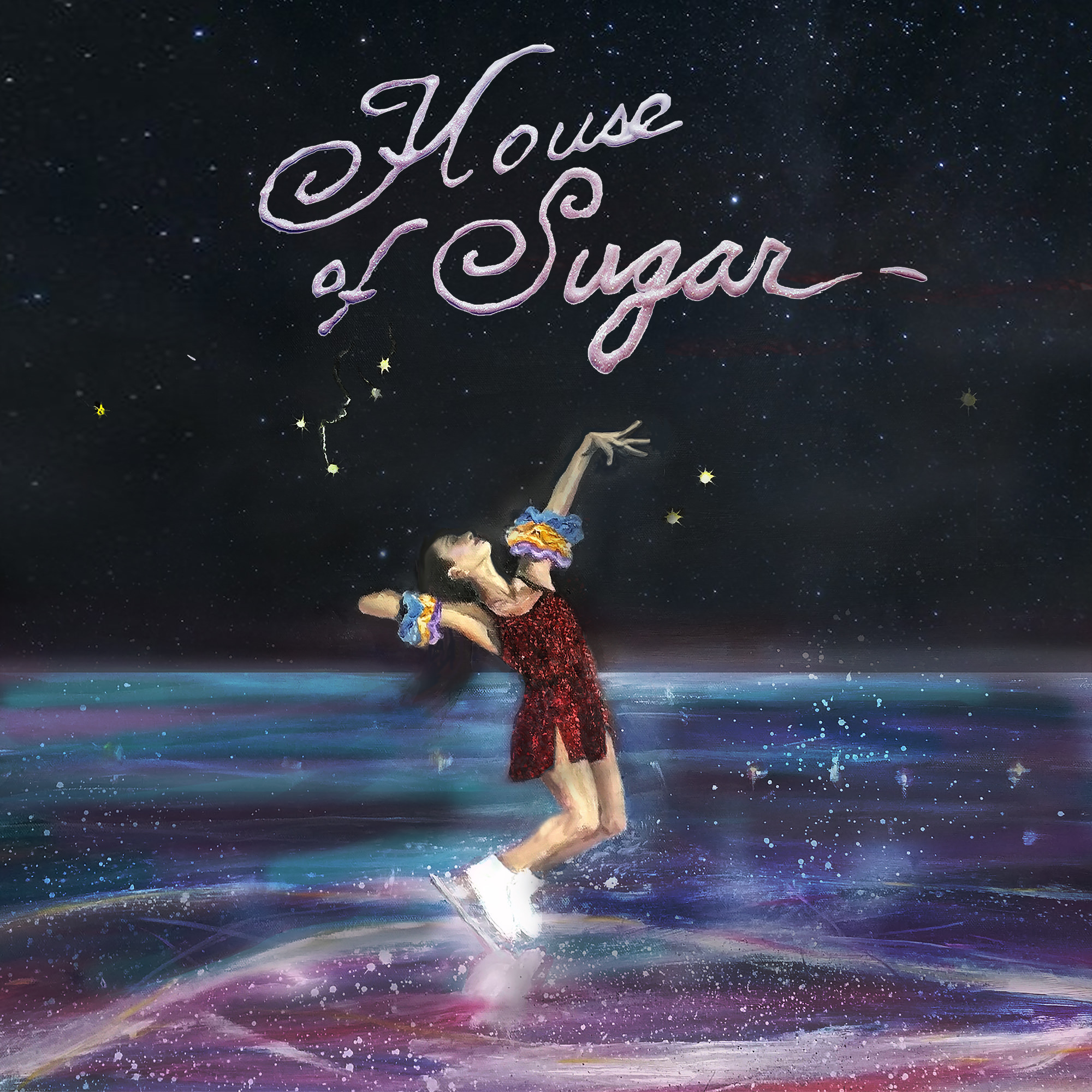There’s an essential roughness to almost everything (Sandy) Alex G puts out. From the seesaw cadences of “Bobby” to the sprightly, confessional “Boy,” the young Philly songwriter’s large and varied discography is marked by a persistent splintered edge—a fuzzy mix, or a recurring voice crack, exposing the shabby heart at the center of it all. In his best songs, the depth of feeling is inseparable from the brokenness. Even a hardcore-indebted track like “Brick,” whose peals of guitar approach the point of raw noise, gets at something fundamentally honest beneath its waves of distortion.
Much of that DIY experimentalism is owed to Alex G’s origin story, and to the art of the unrestrained Bandcamp upload. As a student at Temple University in the early 2010s, he put four full-length projects on the site, compiling lo-fi recordings of songs that set the poetic directness of post-Elliott Smith indie rock against a free-for-all sonic splatter. He came to a crossroads with DSU, released on Orchid Tapes in 2014, which brought him the kind of national attention that can radically alter a songwriter’s process. Crucially, it didn’t seem to. When he signed to Domino to record the follow-up, 2015’s Beach Music, he didn’t need to keep using the same shitty mic he’d been working with for the past ten years, but the fact that he did lent a certain thrown-together intimacy to the project. 2017’s Rocket whipped from discordant interludes (“Horse”) to rootsy incantations (“Alina”) without pomp or polish, placing equal importance on songcraft and aural disorientation. Though his approach can sometimes make his albums feel uneven, the internal discordance is probably part of the point: without the rocky outcroppings of the production, the journey might be somehow cheapened.
On House of Sugar, his eighth proper album and his third for Domino, (Sandy) Alex G continues to find the sensitivity in rough edges, and offers uneven poetry for our own relentlessly uneven lives. Though its title references Philadelphia’s SugarHouse Casino, the album isn’t tied to place, or to any particular range of emotions. In a recent interview with GQ, Alex G made it clear that “there is no story of the record.” A concept album wouldn’t really suit him, after all. House of Sugar draws inspiration from life, from death, from close personal relationships and darkly imagistic folktales. The stunning “Gretel” is ostensibly about Hansel’s sister, but speaks to a universal impulse in defiant couplets: “I don’t wanna go back / Nobody’s gonna push me off track / I don’t wanna be this / Good people gotta fight to exist.” The song peaks as guitar-driven intensity gives way to fiddle and wordless background melodies in its second half.
It’s in moments like these that Alex G shines, with a contrast between tart, imperfect production and imagery that drips warm and rich down the cheek. “I see the red sky / Beyond our state line / Over mama’s minivan / Rushing to work on time,” he sings on “Cow,” over nothing but acoustic guitar. The second verse of “Southern Sky” is among the most wrenching in Alex G’s entire discography: “You and me / These are titles I can hardly speak / Are we bound here to an echo tinted / Blue and green?” The meaning of that last line is unclear, and yet it makes a kind of intuitive emotional sense that’s enhanced by the singsongy naiveté of the melody. Be they the blues and greens of a country drive, or more slippery, modernistic things, they’re accessible, and immediately redolent of heartbreak.
“Hope” showcases an altogether different side of Alex G’s writing, tackling grief in the plainest terms. Opening with the death of a friend, the lyrics turn inward with all the stark self-awareness of a Mount Eerie song: “He was a good friend of mine / He died / Why I write about it now / Gotta honor him somehow.” Like “Real Death,” or “Tintin in Tibet,” both of which stem from proximity to dying, “Hope” is radically direct, and light on metaphor. The frankness that Alex G exhibited on early tracks like “Nintendo 64” is reinvigorated here by a newfound confessional autofiction.
House of Sugar clumps its most adventurous tracks in the middle. The glittering, wide-eyed “Taking” borders on nursery rhyme territory, while “Near” is a dizzying mass of guitar and recursive pleading. Vocal affectations and manipulations come to the fore on “Bad Man” and “Sugar,” the former of which features a deeply silly Southern accent, and the latter of which sounds like it was sung into spinning fan blades. “Project 2” is the least memorable of the bunch: a sparse, frenetic instrumental that sputters out after about two minutes. These aren’t the album’s most effective moments, but they dramatize an overarching commitment to juxtaposition and bricolage that’s palpable throughout the tracklist. In their brevity and slapdash composition, they feel like essential components of the Alex G m.o.
It’s that m.o. that holds House of Sugar together, even as it rejects a single unified concept or “story.” The playful choppiness of the album’s midsection, the unvarnished heartache of “Hope,” and the pastoral beauty of tracks like “Southern Sky” and “Cow” amount to a record that’s rough-hewn and typically irregular in structure. In its hard-shelled mountains and soft, taffy valleys, the same old Alex G persists. The opening lyric of “Gretel” evokes both the continued looseness of his approach, and the sense of inescapable memory that those softly psychedelic sonics bring about. Buoyed by a chorus of chiming whistles, he sings it like a mantra: “It’s calling me back.”





